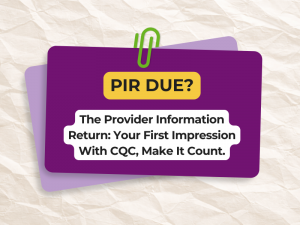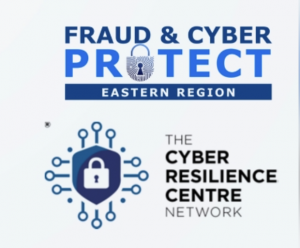The care industry is highly regulated, and for good reason. The care and safety of vulnerable individuals are at stake, making it essential to have strong compliance systems in place. Building a quality compliance system focused on the care industry is a complex and ongoing process that requires a comprehensive approach. This article will discuss the importance of quality compliance systems in the care industry and provide insights into how to build a successful system.
Why is Quality Compliance Important in the Care Industry?
Quality compliance is critical in the care industry as it ensures that individuals receive the best possible care and that their safety and well-being are prioritized. Compliance also protects the organization by reducing the risk of accidents, incidents, and litigation. Additionally, having a strong compliance system in place promotes accountability and transparency, which leads to increased trust and confidence in the organization.
The Care Quality Commission (CQC) is the independent regulator of health and social care in England. The CQC regulates care providers and inspects their services to ensure that they meet the fundamental standards of quality and safety. The standards are categorized into five areas: safe, effective, caring, responsive, and well-led. By having a strong quality compliance system in place, care providers can ensure that they meet these standards and provide the highest level of care quality possible.
In the care industry, quality compliance is crucial as it ensures that the individuals receiving care are treated with the utmost respect and receive the best care possible. Without a strong compliance system in place, there is a risk that individuals’ safety and well-being could be compromised. For example, if a care provider is not compliant with health and safety regulations, it could result in accidents or incidents that could harm patients and staff.
Why is Quality Compliance so important?
Moreover, quality compliance is essential to protect the organization itself. In the event of accidents, incidents, or litigation, compliance can help mitigate the risk and limit the potential damage to the organization’s reputation and financial standing. Furthermore, a strong compliance system promotes accountability and transparency, which can lead to increased trust and confidence in the organization from patients, staff, and stakeholders.
The Care Quality Commission (CQC) is the primary regulatory body in England responsible for inspecting and regulating health and social care services. The CQC sets out fundamental standards of quality and safety that care providers must adhere to. These standards encompass five areas: safe, effective, caring, responsive, and well-led. By implementing a strong quality compliance system, care providers can ensure they meet these standards and provide the highest quality care possible.
To build an effective quality compliance system, care providers must establish policies and procedures that align with regulatory standards and best practices. Regular training and education for staff on compliance and quality assurance can also be essential in maintaining a strong compliance culture within the organization. Furthermore, regular audits and reviews of the compliance system can help identify areas for improvement and ensure that the system remains effective and up-to-date.
The Importance of social care in the care industry
Social care is a crucial aspect of the care sector that focuses on the social well-being of individuals. Social care includes a wide range of services aimed at supporting individuals with their daily lives, from personal care to providing companionship and social activities. Social care services are provided to individuals who may require additional support due to disabilities, illnesses, or ageing. Care staff provide services for families that are in need of support from the social care sector.
The primary goal of social care is to provide services that enhance the quality of life of individuals and promote their independence and participation in their community. It is essential for care providers to have robust policies and procedures in place to ensure that individuals receive high-quality social care services that meet their needs and promote their overall well-being.
What is Compliance Management?
Effective compliance management is an essential component of building a quality compliance system in the care sector. Compliance management involves implementing policies and procedures to ensure that all regulatory requirements are met and that best practices are followed.
This involves monitoring and reviewing processes, identifying areas for improvement, and implementing changes to maintain compliance. Compliance management helps to identify and mitigate risks, reduce the likelihood of incidents or accidents, and ensure that the organization is prepared for audits or inspections.
By prioritizing compliance management, care providers can create a culture of accountability and transparency, where everyone in the organization and sector is responsible for ensuring the highest level of care quality.
Compliance management is the process of ensuring that an organization adheres to relevant laws, regulations, and industry standards. In the care industry, compliance management is crucial to ensuring that care providers are meeting the necessary standards and regulations to provide safe, effective, and high-quality care to their clients.
Effective compliance management involves regularly reviewing policies and procedures, monitoring staff performance, and addressing any issues or concerns promptly. This helps to prevent potential compliance failures and minimizes the risk of legal and financial penalties.
By investing in compliance management, care providers can demonstrate their commitment to quality care, maintain their reputation, and build trust with clients and stakeholders.
What is Residential care?
Residential care is a type of care that provides individuals with a place to live, as well as support and assistance with daily tasks, personal care, and healthcare needs. Residential care is usually provided in a communal setting, such as a care home or nursing home, where residents have access to 24-hour care and support.
Quality compliance is particularly important in residential care, as residents are often vulnerable and require a high level of care and support. Residential care providers and employers must ensure that their policies and procedures are designed to meet the needs of their residents, protect their safety and well-being, and comply with regulatory requirements.
This includes conducting thorough assessments of residents’ needs, providing appropriate training and support to staff, and implementing effective risk management strategies to prevent accidents and incidents.
Risk assessments
Risk assessments play a critical role in building a quality compliance system. These assessments involve identifying potential hazards and assessing the level of risk associated with them. By conducting regular assessments, care providers can identify areas of concern and implement measures to mitigate risks and prevent incidents. This can include measures such as training staff, implementing new policies and procedures, and investing in new equipment or technology. By prioritizing accurate assessments of risk, providers can ensure the safety and well-being of their patients and staff, and protect themselves from potential litigation.
How to Build a Quality Compliance System?
Building a quality compliance system requires a comprehensive and ongoing approach. Here are some steps that can be taken:
- Establish a culture of compliance: The first step in building a quality compliance system is to establish a culture of compliance within the organization. This involves promoting a shared commitment to quality, safety, and accountability throughout the organization.
- Develop policies and procedures: Policies and procedures provide clear guidelines for staff to follow and ensure that care is delivered consistently and to a high standard. It is important to involve staff in the development of these policies and procedures to ensure that they are practical and effective.
- Training and development: Staff training and development are essential to building a strong compliance system. This ensures that staff have the knowledge and skills necessary to meet regulatory requirements and deliver high-quality care.
- Regular auditing and monitoring: Regular auditing and monitoring of compliance systems help to identify areas for improvement and ensure that the organization is meeting regulatory requirements.
- Continuous improvement: Quality compliance is an ongoing process. Regular review and continuous improvement of policies, procedures, and practices are essential to maintaining compliance and delivering high-quality care.
In conclusion, building a quality compliance system is essential to ensure that vulnerable individuals receive the best possible care and that the organization is protected. It requires a comprehensive and ongoing approach that involves establishing a culture of compliance, developing policies and procedures, staff training and development, regular auditing and monitoring, and continuous improvement. By building a quality compliance system, care providers can ensure that they meet requirements, provide the highest level of care quality, and promote trust and confidence in their organization.






